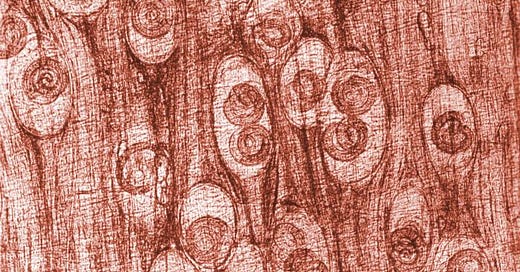Trichinellosis in Argentina 2023
Trichinosis is a parasitic disease caused most commonly by the roundworm Trichinella spiralis.
Through the end of November 2023, Argentina’s Ministry of Health has reported 18 outbreaks of trichinellosis, or trichinosis, with 528 associated cases, in the provinces of Córdoba (8 outbreaks, 87 cases), Buenos Aires (5 outbreaks, 375 cases), Mendoza (2 outbreaks, 12 cases), Neuquén (1 outbreak, 9 cases), San Luis (1 outbreak, 4 cases) and Santa Fe (1 outbreak, 41 cases).
No deaths have been reported.
More than 90% of confirmed and probable cases were recorded in the Center region.
If someone ingests undercooked or raw meat (frequently pork) with the encysted larvae, the stomach acid releases the larvae which mature to adults in the intestine.
After about a week the female starts releasing larvae which enter the bloodstream and find their way to skeletal muscle where they encapsulate.
Outbreak News Interviews Podcast
There can be gastrointestinal symptoms mimicking acute food poisoning when there is activity of the adults in the intestine.
Sudden appearance of fever, muscle soreness and pain with swelling of parts of the face is early classic signs. This can sometimes be followed by retinal hemorrhages and other ocular signs.
With heavy infections cardiac, respiratory and neurological problems may ensue with death by heart failure being most common. The more larvae you ingest, the more serious the disease.
What preventive measures are available?
• Cook all fresh pork, pork products and meat from wild animals to where all the meats reaches 160° F. The meat should turn from pink to gray.
• Freezing pork at -13° F for at least 10 days will kill the cysts. The exception to this rule is strains of Trichinella found in walrus and bear meat which are cold-resistant and must be cooked as noted above.
• Smoking, salting or drying meat is not effective.






